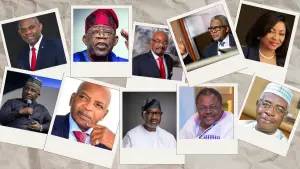As I stood on the bustling streets of Lagos, Nigeria, I could feel the excitement and energy in the air. It’s hard to believe that it’s been two decades since Yeni Kuti started Felabration, a week-long celebration honoring the legendary Fela Kuti.
While I edged my way through the crowds and into the New Afrika Shrine, the vibrant atmosphere took me captive. People were dancing, singing, and having the time of their lives. Even the stage was alive with the sounds of Afrobeat, the music Fela brought to the world.
Straight away, I resolved to write about the life and music of the late great Fela. Indeed, I had to preach about this enchanting festival, how it showcased Fela’s revolutionary lifestyle, and its significance in recent times.
Meet your Legend: Fela Anikulapo-Kuti

On October 15, 1938, Olufela Olusegun Oludotun Ransome-Kuti was born to Reverend Israel Oludotun Ransome-Kuti and Chief Funmilayo Ransome-Kuti in Abeokuta, Ogun state.
When he was eight, his paternal grandfather, Reverend Josiah J. Canon, who believed music was part of a good education, encouraged him to play the piano. Meanwhile, the Reverend released a record album of several Yoruba language hymns in 1925, becoming the first Nigerian to release a record.
Consequently, Fela grew up interested in music, but he only became passionate when he met the late Jimo Kombi Braimah alias JK on a trip to Lagos in 1954. At the time, JK was a guitarist for Victor Olaiya’s highlife band, the Cool Cats.
Four years later, they traveled to London to further their education. While JK applied to study Law, Fela enrolled at the Trinity College of Music—against his parent’s wishes for him to become a doctor.
Fela had his way because he was headstrong like his mother, Chief Funmilayo Ransome-Kuti, a teacher, writer, and anti-colonial feminist. She established the Abeokuta Women’s Union in the 1940s and led the Abeokuta Women’s Riots in 1946.
She also fought to ensure that the Egba women were well represented and led protests against reduced economic roles and increasing taxes for Abeokuta women. So it is evident that Fela’s mother, the “Lioness of Lisabi” influenced his interest in political and anti-colonial issues.
But before Fela became the divine Freedom fighter we honor today, he used to sing a soothing highlife rhythm. But everything changed when he met Sandra Izsadore on a US tour in 1969. Izsadore was a black rights activist who inspired Fela’s Black Power philosophy and helped to change his sociopolitical perspective. She shaped his music by introducing him to the writings of revolutionary minds such as Malcolm X, Angela Davis, and Frantz Fanon.
Though Fela had always advocated for social justice, Sandra injected a fresh dose of advocacy that sparked his revolutionary work in Nigeria and Africa.
Fela Anikulapo-Kuti and His Revolutionary Music

Hailed as the Father of Afrobeat, Fela became a multi-instrumentalist whose deft fingers played the trumpet, keyboard, guitar, and saxophone with an enchanting gusto. He successfully blended Ghanaian Highlife with West African Yoruba music. Then, he added a blend of American Funk and Jazz to create a melodious tool for societal revival.
In 1973, Abami Eda took a stand with the revolutionary music genre when he released his first full-blown Afrobeat album titled “Gentleman.” And one masterpiece after another, Fela battled the issues besetting his motherland.
First, he ridiculed Nigeria’s upper and middle classes for their postcolonial cultural inferiority complex. Then, in “Colomentality,” he rebuked Africans who abandoned their cultural backgrounds after studying abroad and lashed out at black women who used skin-whitening cosmetics in “Yellow Fever.”
He even called out popular bandleaders such as Sir Victor Uwaifo and Commander Ebenezer Obey for adding British honorifics—Sir and Commander—to their names. Fela was no hypocrite, though. In 1975, he changed his last name from Ransome-Kuti (a slavish colonial name) to Aníkúlápó-Kuti (one who carries death in his pouch).
Kuti also led organized musical onslaughts on Nigeria’s corrupt ruling regime and colonial legacy; making him the People’s Hero and Government’s Koboko (horsewhip).
But Fela’s revolution didn’t go unnoticed. He reportedly spent 20 months in jail and was arrested almost 200 times for made-up charges. On November 23, 1974, the Police raided his home, Kalakuta Republik; on February 18, 1977, government soldiers razed the property.
In a short time, Fela and his Egypt 80 band became famous for singing against issues such as military injustice, religious bigotry, economic oppression, and racial discrimination. But that was not all; while spreading the groovy sound of Freedom across the continent, he also inspired others to walk the musician’s path.
In summary, Fela is arguably Africa’s greatest socio-political activist and musician who wanted a unified, corrupt-free nation and continent whose people believed in themselves. Although Fela passed away in 1997 after a protracted illness, his music lives on—like the true legend he is.
So yes, Abami Eda is worth celebrating.
The Fela Celebration: Felabration

Fela’s lyrics had a timeless appeal so powerful that, almost three decades after his demise, his music remains fresh in the memories of Nigerians—old and young. Even so, the living had to uphold his legacy.
His children Yeni, Femi, Seun, and Kunle have all devoted their time, energy, and resources to keep the revolution alive and immortalize Fela’s contributions to society. In 1998, his oldest daughter Yeni organized the first-ever Felabration Festival at the New Afrika Shrine to celebrate his influential life and revolutionary music.
Besides the Felabration events, Yeni still entertains the crowd at the Shrine whenever she’s in town. Femi plays with his band, Positive Force several times in the month when they’re not touring. While Seun performs with Fela’s band on the last Saturdays of each month if they’re not booked solid.
The Felabration Festival is a 7-day experience held on the week of Fela’s birthday in October with a symposium and Secondary Schools debate. It’s a week of various electrifying events, from concerts and street parades to the Afrobics dance competition and art exhibitions. Then the organizers treat attendees to thrilling music, live performances, and stage plays from emerging and renowned artists.
How Felabration Showcases and Upholds Fela’s Revolutionary Lifestyle and Music

The Felabration festival features artists representing different musical styles, genres, and cultural backgrounds. That way, natives and foreigners can experience and understand the diverse Nigerian music and culture.
Aside from showcasing Fela’s music, Felabration also helps to preserve his legacy and introduce new listeners to his music—including Gen Alphas.
In addition, Felabration shows how Fela’s Afrobeat sound has inspired generations of artists and activists around the world.
In 2019, Nigerian singer and songwriter, Wizkid featured Femi Kuti in his Afrobeats jam Jaiye Jaiye while Wyclef released a single titled Fela Kuti in 2017. Likewise, Afrobeats star Burna Boy—a Grammy award-winning singer like Wizkid and Wyclef—draws inspiration from the legend. Superstars such as Tony Allen, Mos Def, Bilal Sayeed Oliver, D’Banj, Tiwa Savage, Nas, and Kizz Daniel have sampled Fela’s lyrics, as well.
Undoubtedly, Felabration plays a huge part in promoting music and activism in Nigeria and beyond. Fela Anikulapo-Kuti lives on as the champion of underprivileged people. So his contributions to society will remain celebrated through the Felabration Festivals.
The Significance of Felabration Festivals in Recent Times

“The Shrine for me is all about positive revolution. The poor people sit with the rich people, the white people sit with the black people, and nobody feels different.” – Femi Kuti
We can not dispute the continued relevance of Fela’s music and message in our contemporary society.
Every year, Felabration attracts exceptional musical talents from far and wide who pay homage to the legend with their electric performances. The Shrine has seen the likes of Hugh Masekela, Femi Kuti, Lucky Dube, Awilo Logomba, Baba Maal, Les Nubians, King Sunny Ade, Lagbaja, Asa, Sauti Sol, Seun Kuti, reggae legend Majek Fashek, international reggae band Third World and many others.
Likewise, famous moderators have graced the Felabration symposia over the years: distinguished playwright and author Sefi Atta, Dele Farotimi, Bobi Wine, Donald Duke, Speaker Femi Gbajabiamila, Professor Wole Soyinka, Femi Falana SAN, Dr. Obi Ezekwesili, and award-winning poet and writer Chimamanda Ngozi Adichie.
As a testament to Felabration’s global nature, In October 2008, the African Express, consisting of over 50 international artists, graced the Shrine and performed for about 10,000 people. Now you see how the festival creates cross-cultural collaborations between musicians in African, Middle Eastern, and Western countries.
Also, if you attend the annual celebrations, you’d notice how up-and-coming artists try to perform remixes of Fela’s classics such as Zombie, Lady, and Ghetto. This means that Felabration accommodates varied music genres, including Afrobeats, Afropop, R&B, Reggae, and Dancehall; thus allowing talents to share their work with a bigger audience.
In addition, Fela’s popular Afrobeat introduced other African music genres like Jùjú, Fuji, Amapiano, Highlife, and Makossa to the global scene. These genres have even influenced international music styles such as rock and roll, country, rock, funk, jazz, rap, blues, and hip-hop.
The variety in music attracts thousands of visitors from all over the world, making the Shrine an official tourist attraction and revenue source for the state. The Shrine also fosters national unity by bringing people from different cultural backgrounds.
Indeed, Felabration is more than just the music. It’s a time to honor Fela’s legacy and the impact he had not only on the music industry but also on the political and social climate of Nigeria. A time to pay homage to the powerful lyrics and bold activism that inspired a generation to stand up for their rights and fight against injustice.
How to Attend Felabration

If you’d like to attend a Felabration festival, I’ve compiled a few tips with help from award-winning event and festival producer, Onye Ubanatu. He helped organize the 2020 Argungu fishing festival in Kebbi, so he has loads of experience.
Here are our two cents,
First, confirm the dates and location of the festival. Although Felabration is held in October, you should visit the Felabration Instagram page for updates on the dates and location of the festival.
The next step is to purchase your Felabration ticket on the website or at designated outlets. Please ensure you book early enough to guarantee a spot at the festival. You can also call 0809 301 3530 or send an email to info@felabration.net.
Since the festival is in Lagos, the busiest city in Nigeria, you should plan your transportation. If you live outside Lagos, please book your bus, train, or flight tickets beforehand and arrange accommodation close to the festival venue.
Like any music festival, Felabration has a feel-good energy that’ll have you swaying to the instrumentals in no time. Even if you do not know any dance moves, it’s impossible to resist the infectious sounds. So make sure you choose clothes and shoes that won’t get in the way, as I did.
The Night Comes to an End
While I edged my way through the festival, the sights reminded me of Fela’s enduring influence. Everywhere I looked, I saw t-shirts emblazoned with his face and artwork featuring his iconic hairstyle and sunglasses. So it’s clear that Fela’s spirit lives on through the music and activism of those who continue to carry on his legacy.
As the night wears on and the music continues to pulse through the streets, I can’t help but feel grateful to be a part of such a meaningful celebration. Felabration may only happen once a year, but future generations will feel the impact of Fela Kuti’s music and message.





